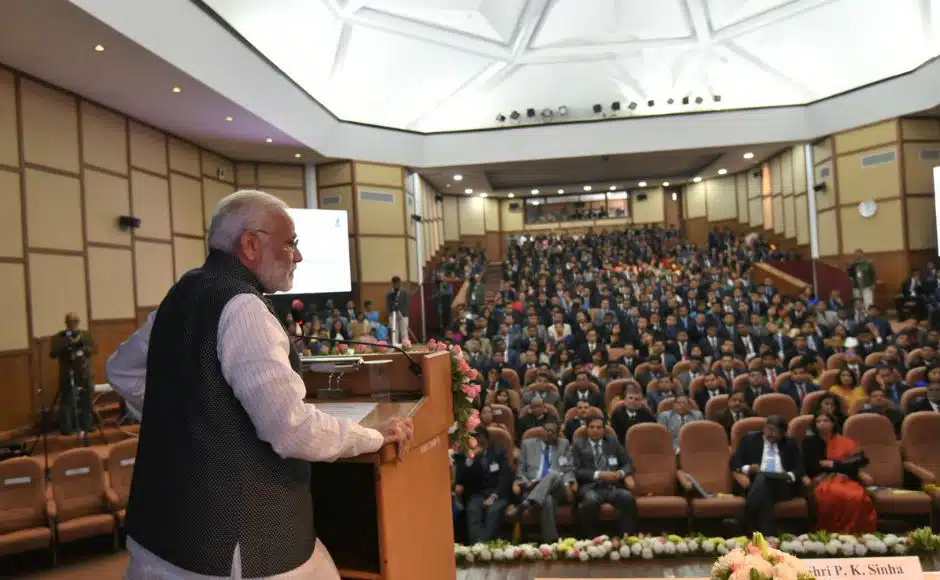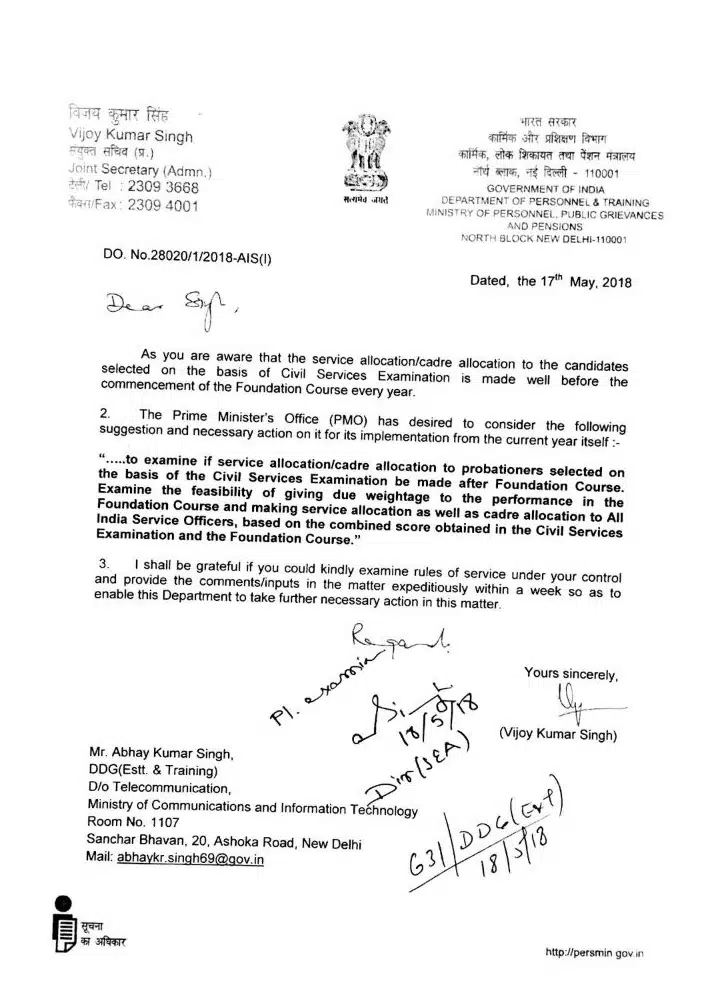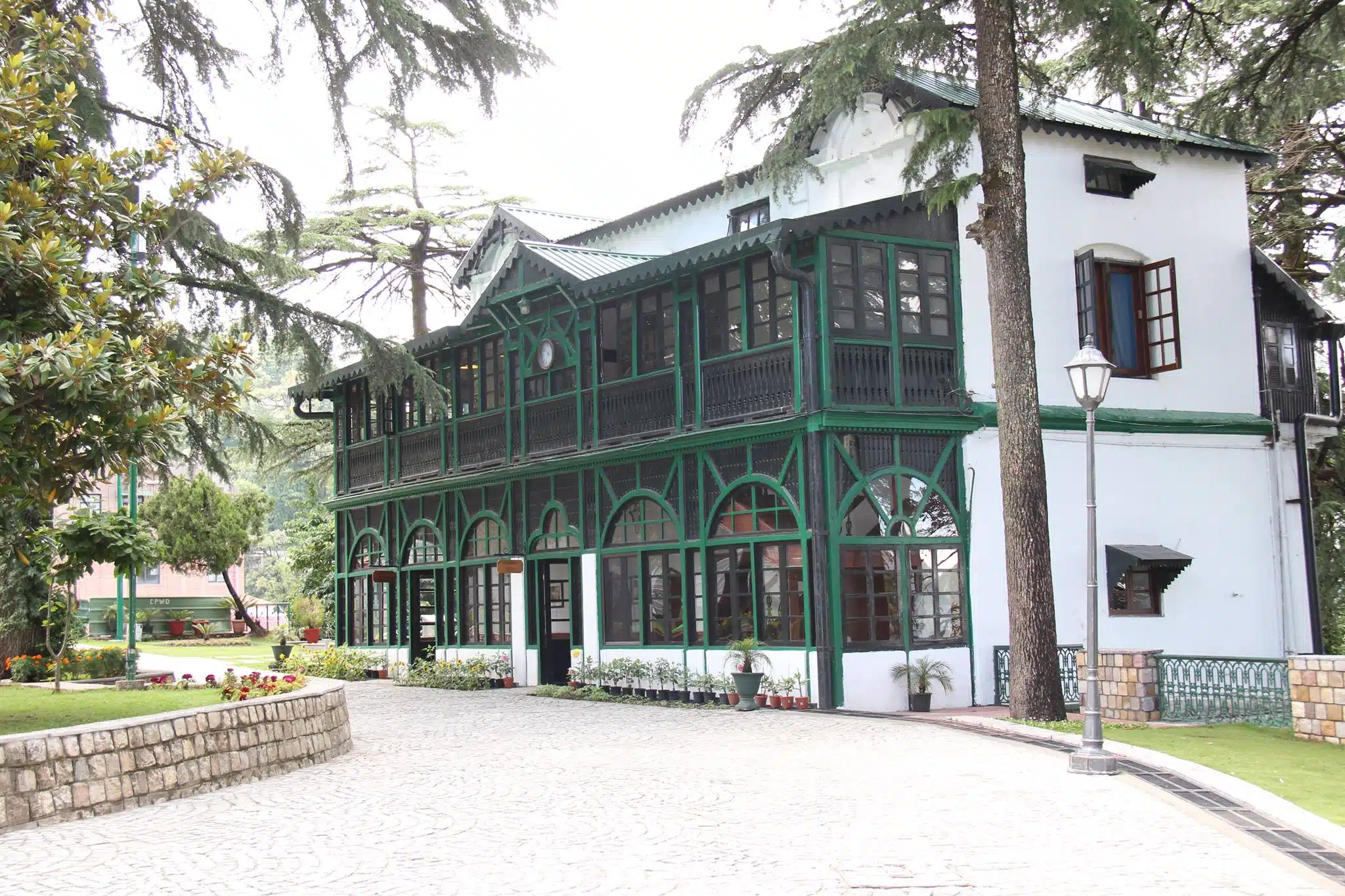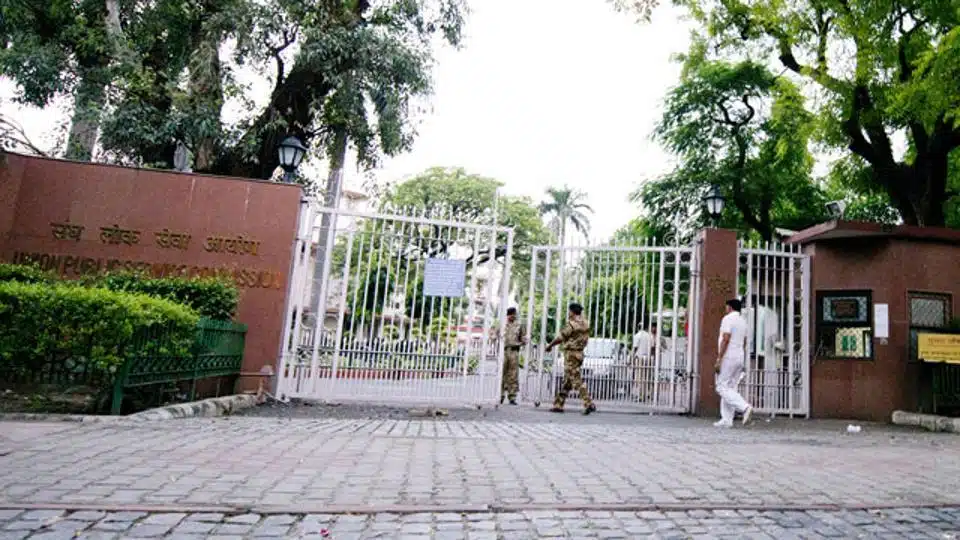IAS/ IPS Allocation Proposal by PMO : an Unethical Move to Create ‘Loyal’ Bureaucracy

Prime Minister’s Office(PMO) planning to change in the current system of service allocation of services like IAS or IPS. PMO is not only considering to change the way to getting selected in civil services but also the selection criteria for cadre allocation.
What is new in IAS/IPS Allocation Proposal?
As of now, IAS/IPS and other central services allocation made as per the marks of candidate secured in UPSC Civil Services exam along with reservation rules.
As per the latest proposal, PMO seeks to add foundation course marks to UPSC Services exam marks secured by the selected candidates.
Scoring top marks in Civil Services Exam alone will not help you to get into the desired service if the recommendation is accepted.
The government has checked the suitability of adding additional criteria – the marks scored by the compulsory three-month long Foundation Course.
All about Foundation Course
Foundation Course is a 100-day training program for those who selected in UPSC CSE. Foundation Course (FC) is conducted by Department of Personal and Training (DoPT).
It is not compulsory for all selected candidates except IAS, IPS, and IFS Trainees. FC is optional for those who allotted to Group A Services except IFS.
Three months long Foundation Course is held at Lal Bahadur Shastri National Academy of Administration, Mussorie.
Foundation course consists of training in various fields, consists of academic training in various subjects such as administrative law, political science, and public administration. Moreover, other extracurricular activities like trekking, the performance of cultural programs and village visits.
Currently, Foundation Course paper consists of 400 marks.
DoPT seeks the opinion from cadre controlling ministries
As per the desire of the Prime Minister’s Office, in addition to the marks scored in UPSC CSE, PMO wants to allocate service and cadre as per the performance of candidates in Foundation course.
Department of Personnel and Training (DOPT), asked opinion from Cadre controlling ministries such as home, forest etc by revealing that PMO wants to change the rule from this year itself.
Items to be examined:
- If service allocation/cadre allocation to trainees selected on the basis of the civil services examination be made after Foundation Course.
- The feasibility of giving due weightage to the performance in the Foundation Course and making service allocation as well as cadre allocation to All India Services Officers, based on the combined score obtained in the civil services examination and the Foundation course.
Positive side of IAS/IPS Allocation Proposal
A plenty of newly selected probationers considers foundation course as just a formality because they are already allocated to care and services. If their marks and rank in CSE and performance in foundation course will be mandatory, they will attend the training more seriously.
Negative side of New IAS/IPS Allocation Proposal
There are a lot of problems with service/cadre allocation policy. A few are listed below.
- If the Government intends to dilute the authority of selection and recruitment from the independent agency – UPSC – it may be considered as a violation of the principles of Constitution
- If the service and the cadre allocation are done on the combined score of the civil services examination and the score or performance of the FC, it will undermine the role of UPSC by increasing the interference of the executive.
- Service allocation after foundation course may cause for political favoritism and corruption. There can be very high political pressure on the teachers, and academy administrators to make bureaucracy loyal to the ruling regime.
- If the PMO’s latest proposal is accepted, it will theoretically be possible for a candidate whose rank in the UPSC civil services examination can get him only into, say, the Indian Defence Accounts Service, to climb up to the coveted Indian Administrative Service on the basis of how well he does his foundation course.
- If an aspirant who has prepared hard for years to acquire top spot in the UPSC exam somehow performs worse in the 100 days foundation course, and if he/she is denied the cadre and service selected or deserved, then it would be unfair to him/her.
- LBSNAA cannot accommodate all selected 990 candidates at a time for the foundation course.
- The papers, the subjects, the faculty, and also the overall standards are different for various foundation courses. As result, there would be a lot of arbitrariness in something as crucial as service allocation for which candidates put in so much effort.
- It is also unfair to make the trainees compete from day one of their foundation course; the cooperative mentality among them will be lost.
- Reducing the importance of CSAT paper (GS Paper 2 -prelims), the proposal for lateral entry into civil services, the introduction of zones above the cadres, proposal to reduce age limit as per Baswan committee reports etc are the major changes made by the current government.
Also read: UPSC Age Limit – will they change it?
Our opinion regarding New IAS/IPS Allocation Proposal
- The probationers get selected after a gruelling selection process and a merit list is prepared on all India level. The foundation course is just introductory course and should not be taken into consideration once merit list on all India level is available for selecting the specific choices.
- The foundation course has subjects like Hindi and hence people whose mother tongue is not Hindi will be a disadvantage. The move to base selection to a service based on foundation course is subjective and should not be implemented.
A probationer’s performance in the foundation course to decide his or her service will ruin whatever objectivity the UPSC examination provides and put pressure on probationers to appeal to the subjective assessments of their examiners. - Some officials see a deeper design in the desire to implement the proposed new system from this year itself.
- The proposal raises a whole lot of technical questions cannot be easily resolved given the current system of service allocation and training. Above all, the fear is that pliant academies with extraordinary powers will open the doors of sought-after services to people whose ideological outlook suits the current government, creating a loyal or ‘committed’ bureaucracy over the long haul.
Also check: Marks of UPSC Civil Service Toppers 2017
References :











Leave a Reply